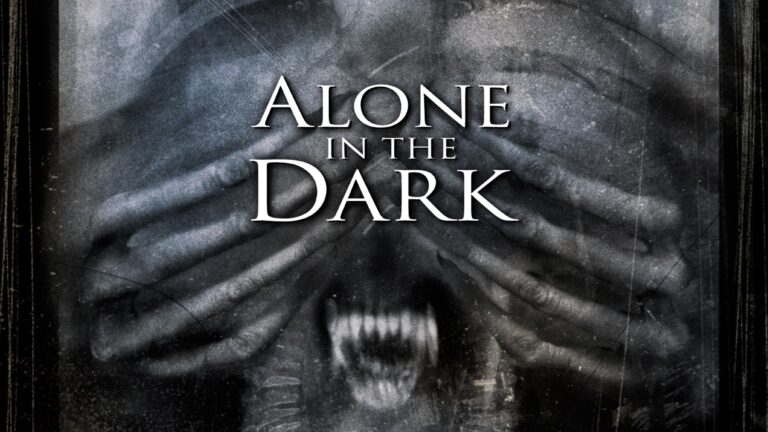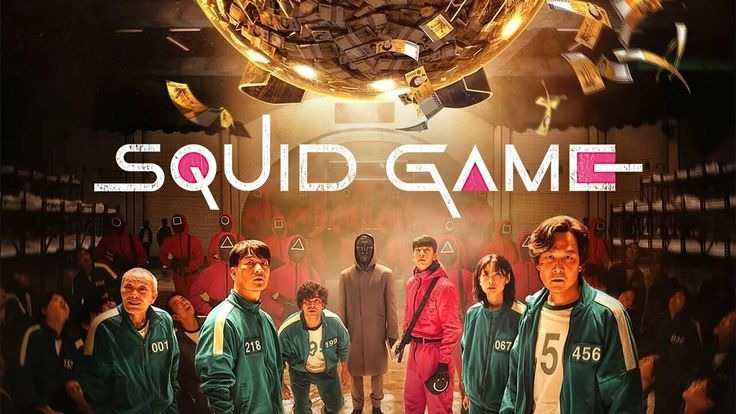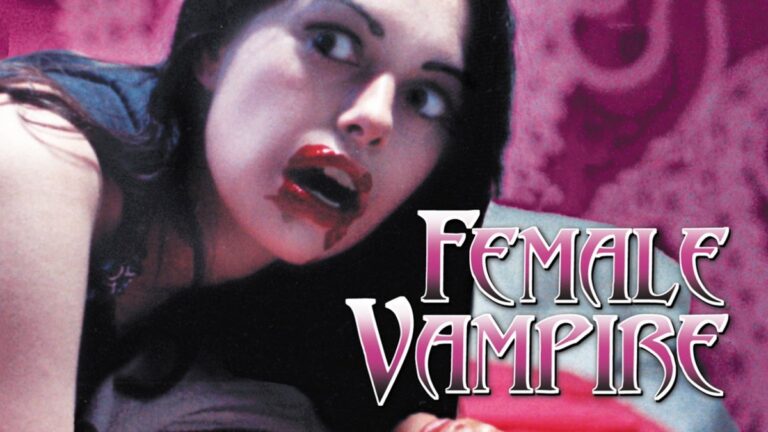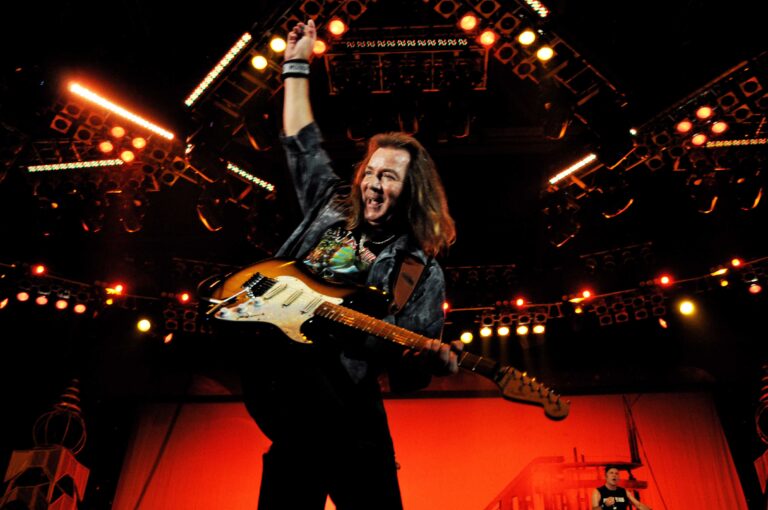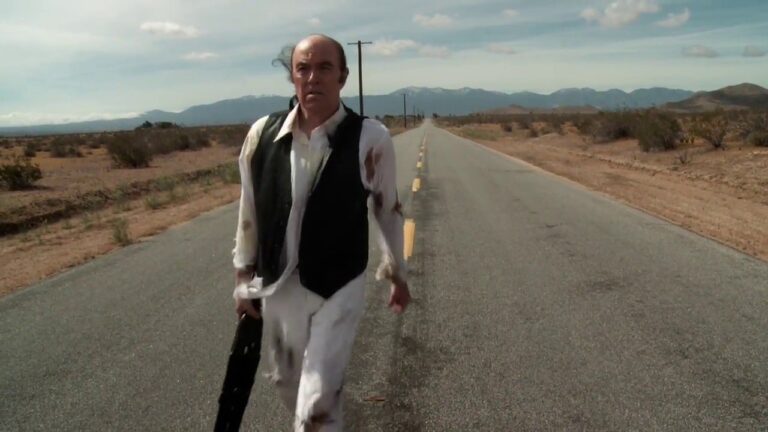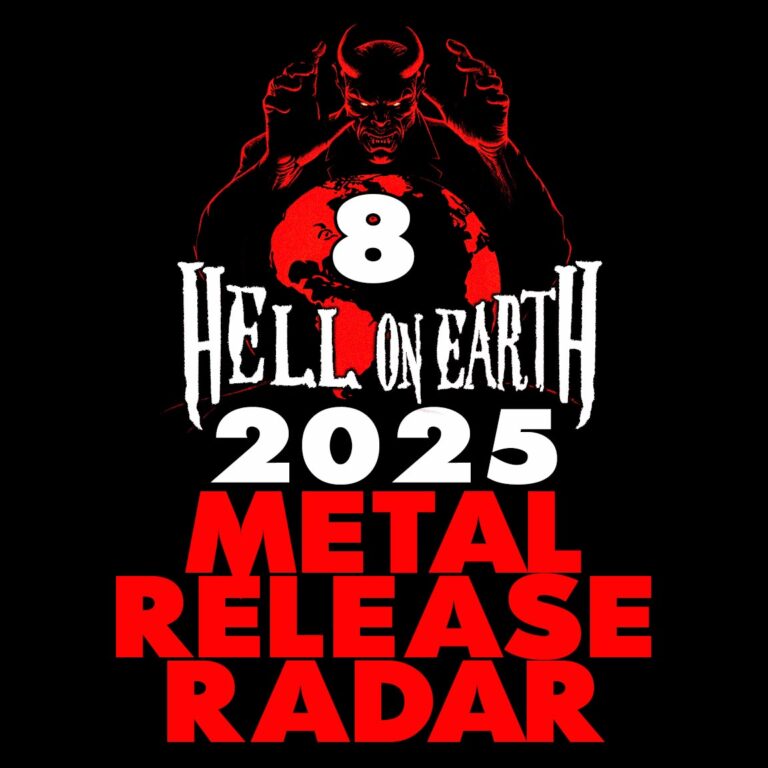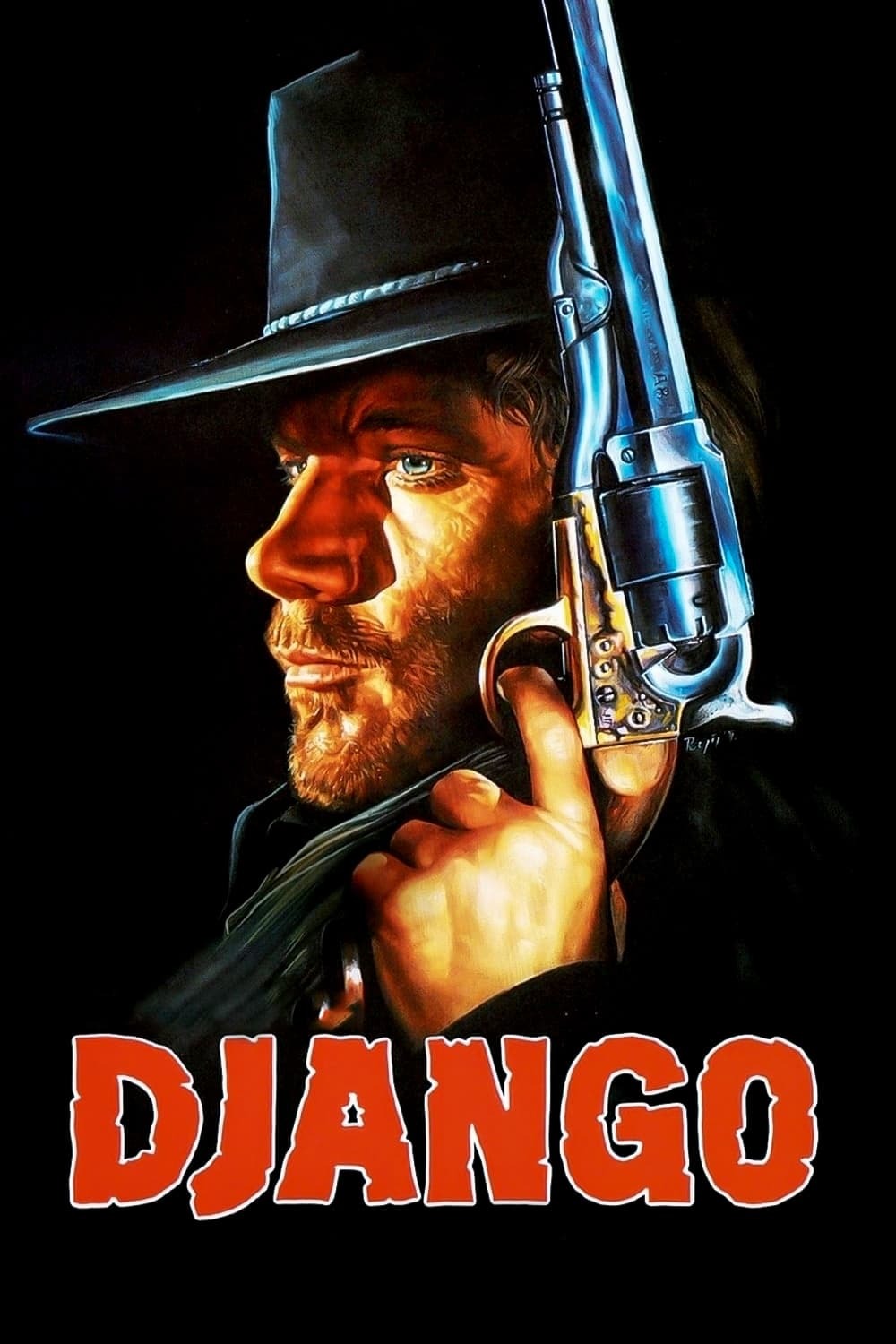
Dragging a coffin through the rain and mud, the antihero Django (Franco Nero) makes his way to a filthy, lawless town in the Wild West. Along the way, he rescues the prostitute Maria (Loredana Nusciak) from being killed by a gang controlled by Major Jackson—but not out of heroism. Django is consumed by hatred and driven by revenge, with a clear plan for his visit. He lets no one stand in his way.
Maria leads Django into the town, which is torn apart by two rival factions: on one side, Major Jackson and his hooded men, and on the other, the Mexican revolutionary General Rodriguez. Together, they have turned the town into an abandoned wasteland, a place few dare to enter.

Italian spaghetti westerns faced harsh censorship in Norway, and Django was among the most notorious cases. The film wasn’t just banned in Norway—Sweden and Finland also deemed it too extreme. Given how graphic the violence is, that might not be surprising—especially considering that Ruggero Deodato worked as an assistant director on the film. Deodato would later become one of Italy’s most infamous filmmakers with Cannibal Holocaust (1980), released more than a decade later.
Not that Sergio Corbucci needed help crafting brutal violence. Many of his other westerns—like The Great Silence, The Hellbenders, and Navajo Joe—are filled with bloodshed, but Django remains his most violent film, boasting a body count of 138. Then there’s the infamous ear-cutting scene, which Quentin Tarantino would later borrow for Reservoir Dogs. Django is one of Tarantino’s all-time favorite films—not just for that moment, but as a whole. He would later craft his own tribute to the character in Django Unchained (2012).
Tarantino isn’t the only filmmaker to honor Django. Japanese director Takashi Miike paid homage with Sukiyaki Western Django (2007), and in 2022, a less successful TV series simply titled Django was released.
Sergio Corbucci has always lived in the shadow of Sergio Leone, the undisputed master of the Italian western. That’s hardly surprising—Leone was an extraordinary filmmaker who set the standard and popularized the genre. But Corbucci’s films share more than just a first name with Leone’s work.
Corbucci borrowed heavily from Leone’s A Fistful of Dollars, which had just been released when Django went into production. But Django himself is modeled after the protagonist of Akira Kurosawa’s Yojimbo, a character originally based on Dashiell Hammett’s novel Red Harvest—which also inspired A Fistful of Dollars. The two films even feature the same type of machine gun. The similarities were so striking that Django was released in Japan as A Fistful of Dollars Part 2.

But despite being overshadowed by Leone, Corbucci’s films hold their own. His westerns may feel cheaper, more exaggerated, and a lot bloodier, but they deliver pure, rugged entertainment. And Django is his masterpiece.
The myth of Django has only grown over the years. After its release, countless films were given the Django name to cash in on its success. Some movies were even renamed as “Django” films long after their original release. It’s a testament to the film’s enduring popularity.
Although there are many unofficial sequels, only one—Django Strikes Again (1987)—is considered a true follow-up. But Django’s influence extends far beyond sequels and remakes. The character and film have been referenced, parodied, and honored across multiple mediums. His influence can be seen in everything from video games like Red Dead Revolver and Gun, to TV shows like The Simpsons, to major Hollywood films like Rango, Star Wars, Ratatouille, and Iron Man 3. Even the adult film industry produced Django Nudo. The influence extends to comics like Trigun and music, with artists such as Danzig and The Upsetters paying tribute. The punk band Rancid even wrote a song about Django, with the chorus:
“Django, you drag your coffin around. All around town, just like a dead man does.”


